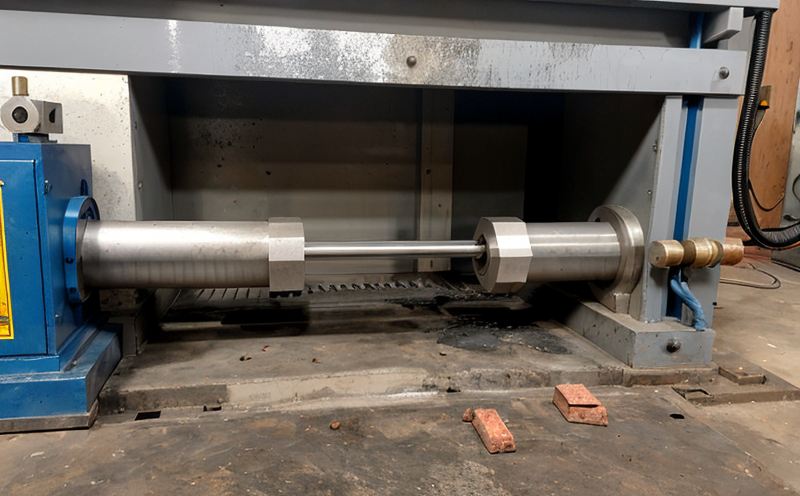ASTM D6641 Compression Testing of Polymer Composites
The ASTM D6641 standard specifies the procedure for determining the compressive properties of polymer composites. This test is critical in ensuring that materials used in high-stress applications meet the necessary mechanical performance criteria. Polymer composites are widely used across various sectors, including aerospace, automotive, and construction, due to their excellent strength-to-weight ratio and durability.
Compressive testing involves applying a controlled compressive load on a specimen until it fails or reaches its maximum capacity. The ASTM D6641 method is designed to provide accurate and repeatable results that can be used for quality control, research and development, and regulatory compliance. It helps in identifying the failure modes of polymer composites under compression.
For a successful test, proper specimen preparation is essential. Specimens should be cut according to the dimensions specified in ASTM D6641. The choice of geometry (e.g., cylindrical or rectangular) depends on the type and application of the composite being tested. After cutting, specimens must undergo conditioning to ensure they are at equilibrium with their environment prior to testing.
The compression testing machine used should have a capacity that exceeds the expected load by at least 20%. The machine must be capable of applying loads at a rate specified in ASTM D6641. Calibration and validation of the equipment according to ISO/IEC 17025 standards ensure accurate and reliable results.
During testing, the specimen is placed between two platens with flat surfaces to minimize stress concentrations. The loading direction should be perpendicular to the longitudinal axis of the composite. Load cells measure the applied force while extensometers monitor any deformation or strain in real-time. Data collected includes peak load, failure load, and deformation at various stages.
Acceptance criteria for ASTM D6641 test results vary depending on the specific application requirements but generally include a minimum compressive strength value. Compliance with these standards ensures that materials used meet industry expectations regarding performance reliability.
Incorporating ASTM D6641 into your quality assurance process provides valuable insights into how different factors such as temperature, humidity, and environmental exposure affect the mechanical behavior of polymer composites. By adhering to this standard, manufacturers can ensure their products are robust enough for demanding applications while also staying compliant with relevant regulations.
- Reduces development time by identifying potential issues early on
- Promotes consistency in material performance across batches and suppliers
- Aids in meeting regulatory requirements
Benefits
Implementing ASTM D6641 compression testing offers numerous advantages for manufacturers working with polymer composites. One key benefit is the ability to optimize material properties by understanding how changes in formulation or processing conditions influence compressive strength and other mechanical properties.
Another advantage lies in reducing costs associated with failure during production or end-of-life disposal. By catching defects before they become serious problems, companies can avoid costly rework or scrap. Additionally, consistent adherence to ASTM D6641 helps maintain brand reputation by delivering high-quality products that meet customer expectations.
Furthermore, this testing methodology supports innovation within the industry by allowing researchers and engineers to explore new material combinations and architectures with confidence. With accurate data points from reliable tests like those conducted per ASTM D6641, teams can push boundaries without compromising safety or quality standards.
Customer Impact and Satisfaction
Customers benefit greatly from the rigorous testing procedures outlined in ASTM D6641. When suppliers provide test results that comply with these stringent guidelines, it instills trust among buyers who rely on consistent performance from their purchased materials.
The data generated through this process allows customers to make informed decisions about which products best suit their needs based on proven mechanical properties. This transparency enhances customer satisfaction by ensuring they receive exactly what was promised—materials that perform reliably under expected conditions.
Moreover, compliance with ASTM D6641 helps companies expand into new markets where stringent quality controls are required. Meeting these standards demonstrates a commitment to excellence and opens doors for international business opportunities. Ultimately, satisfied customers lead to repeat purchases and positive word-of-mouth recommendations—key drivers of long-term success in any competitive marketplace.





